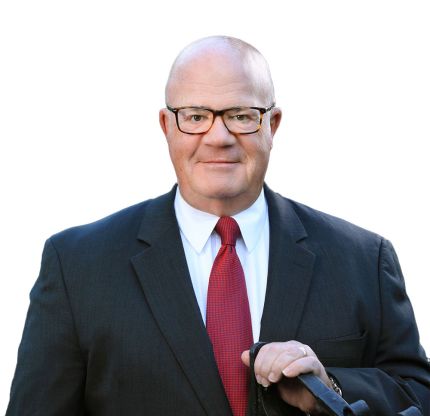
Why Funeral Directors Need Two Eyes
In his controversial series challenging the belief that Funeral Service is in the “Grief Business” Dale Clock provocatively pushes us to examine what business we are really in. It is a conversation long overdue and, regardless of which side you are on, absolutely necessary to our future.
This is more than an “academic” conversation. For it is the very livelihoods of all practitioners that are at stake. Since Dale’s bold challenge I have pondered his question. No, I don’t have a firm answer and I am not sure, as a consultant, that it is for me to declare the answer. In fact, I sense that the answer may, itself, be situational leaving it to personal choice. In other words: “Where do you want to stand?”
This article from Steve Goodier (http://www.lifesupportsystem.com/) helped me at a personal level get closer to the “What Business Are We In?” answer.
FINDING THE RIGHT WORDS
Have you ever noticed how hard it can be to find the right words?
It was once said that Al Smith, former governor of New York, was making his first inspection of Sing Sing prison. The warden asked him if he might say a few words to the prisoners. The governor began, “My fellow citizens.” But he suddenly felt confused about whether the inmates may have forfeited their citizenship. So he took a second stab at it: “My fellow convicts.” There was a roar of laughter and now he became flustered. He gallantly tried a third time: “Well, anyhow, I’m glad to see so many of you here.”
There is no record of what he said after that.
I have frequently struggled to find the right words. And there are times I am certain the right words do not even exist. Like when I’m trying to say something hopeful or comforting in a particularly frightening situation. More than once I have been called to a hospital emergency room or to be with a family surrounding the bed of a dying relative. And more than once I’ve been at a loss for words. What is the right thing to say at a time like that? What can I say that doesn’t sound hollow or trite or like I’m just not in touch with the feelings of others who are hurting?
A lot of us really don’t know what to say at these times. And too often the professionals who work daily with people on the ragged edge of hope have become so desensitized they have lost any ability to comfort.
A wise obstetrician at a university teaching hospital once made a comment about comforting those who suffer. Someone asked the doctor what advice he offered his students, future doctors and nurses, when caring for mothers who gave birth to stillborn infants. The doctor paused for a moment in thought. Then he said this: “I tell them that they need two eyes. One eye is not enough; they need two eyes. With one eye they have to check the I.V. And with the other eye they have to weep. That’s what I tell them,” he said. “I tell them that they need two eyes.”
That may be some of the wisest advice I’ve ever heard. We may not always need to figure out what to say; we really only need two eyes.
In Emily Dickinson’s words, “Saying nothing . . . sometimes says the most.” And this from a poet whose life was all about finding exactly the right words.
I agree with the doctor – empathy goes a long way. And somehow finding the ability to feel, even for a few moments, what another is feeling may speak more loudly than the best words I can choose. It speaks to the fact that I care; I understand. It says that I am willing to share their pain so they do not feel so alone. It says I want to be fully present with them and to walk alongside of them, difficult as it may be. My presence is something they can draw real strength and hope from. Come to think of it, maybe Dickinson did find the right words: saying nothing . . . sometimes says the most. And saying nothing at all may be just the right thing to say.
— Steve Goodier
http://www.lifesupportsystem.com/
Our Blogging Expert

Business Consultant / Owner
Popular Articles
